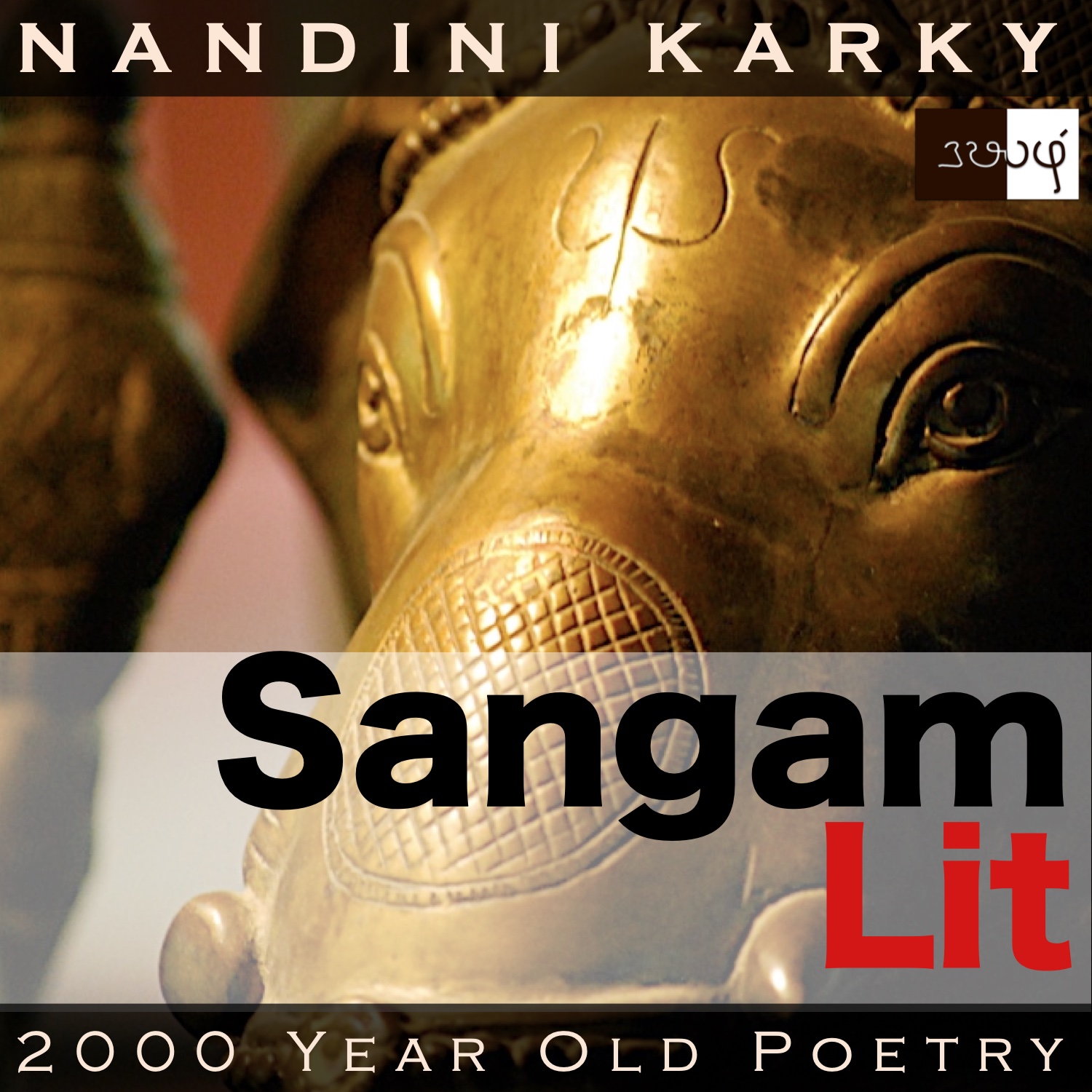Podcast: Play in new window | Download
Subscribe: Apple Podcasts | Spotify | Amazon Music | Android | iHeartRadio | Email | TuneIn | RSS | More

In this episode, we learn of the customs of a particular sect of people in ancient times, as depicted in Sangam Literary work, Kurunthogai 156, penned by Pandiyan Enaathi Nedunkannanaar. Set in the mountains of ‘Kurinji’, the verse speaks in the voice of the man to his friend, in response to the friend’s words of chiding about the man’s changed behaviour.
பார்ப்பன மகனே! பார்ப்பன மகனே!
செம் பூ முருக்கின் நல் நார் களைந்து
தண்டொடு பிடித்த தாழ்கமண்டலத்துப்
படிவ உண்டிப் பார்ப்பன மகனே!
எழுதாக் கற்பின் நின் சொலுள்ளும்
பிரிந்தோர்ப் புணர்க்கும் பண்பின்
மருந்தும் உண்டோ? மயலோ இதுவே.
‘All about an ancient Brahmin’, says this one. In the opening words ‘பார்ப்பன மகனே’ meaning ‘O son of a Brahmin’, the verse establishes the community of the man’s friend, and this seems to be of significance, because the same words are repeated two more times as the lines flow. Next, we glimpse a striking tree in ‘செம் பூ முருக்கு’ meaning ‘red-flowered Indian coral tree’, turning the spotlight on the claw-like red flowers of this tree that renders it the name of ‘tiger-claw tree’ as well. From an element in nature, we turn to look at a man-made object in ‘தாழ்கமண்டலத்துப் படிவ உண்டி’ referring to ‘ritual food in a low-hanging vessel’. In contemporary times, the word ‘கமண்டலம்’ refers to a characteristic water-jug, with a top handle and a side-spout, carried by Hindu ascetics. The next line ‘எழுதாக் கற்பின் நின் சொலுள்ளும்’ beckons our attention for it means ‘in the unwritten words you speak’, the importance of which, we will explore shortly. Ending with the words ‘மயலோ இதுவே’ meaning ‘isn’t this a misconception’, the verse intrigues our curiosity.
Abstract words and ascetic objects seem to contain deep reflections. The context reveals that the man had met the lady and fallen in love with her and the lady too, reciprocated his feelings. However, the man was unable to meet with the lady as he wished to, and owing to this, there were changes in the man’s behaviour. Seeing this, the man’s friend starts scolding him for not behaving in a stable and responsible manner. To this friend, the man says, “O son of a Brahmin! O son of a Brahmin! You hold a staff, made by removing the fine fibres of the red-flowered ‘murukku’ tree, and eat ritual food from a low-hanging vessel, O son of a Brahmin! In the unwritten words that you chant, is there a medicine to bring together those separated? You are the one confused!” With these words, the man is rejecting his friend’s rebuke and declaring that his feelings are natural and valid.
Time to explore the nuances. The man addresses his friend as the son of a Brahmin repeatedly. Then, he goes on to talk about the ways of that Brahmin, explaining how this person holds a cane, made of the fibre-stripped bark of the red-flowered coral tree. Next, the man focus on a special bowl that hangs low, and describes how the Brahmin eats ritual food from this bowl. The ‘ritual food’ here could be a special kind of food meant for ascetics, perhaps without meat and spices, as their scriptures dictated then. Next, the man turns to the words that this Brahmin speaks and characterises the same as ‘words that belong to the unwritten kind’. This line gives sound evidence for two aspects about languages in ancient times. One, the language and scriptures of the Brahmins strictly belonged to the oral tradition and this was handed down, generation by generation. The second aspect is that since this verse specifically states that those words are of the unwritten kind, conversely, it gives support to the fact that the language of the Sangam people was written down. And it’s this differentiation between Tamil, and perhaps, Sanskrit, that is highlighted in this single line of verse.
Moving on, the man puts forth a question to this friend asking if those scriptures chanted by the Brahmins had a cure that could bring together separated lovers. This is a rhetorical question to say that indeed those scriptures cannot solve the man’s worry. And thus, the man concludes declaring to his friend that his friend’s words of rebuke arise out of a delusion that there is only one way to be. With this, the man is pushing aside the moral policing of his friend and declaring that love and pining are natural, and if the friend truly wanted to help, he should set aside his reprimands and try to determine the reason for the man’s changed state and resolve it. In the end, the verse makes a bold declaration that even the scriptures do not understand everything and gives us the confidence to trust in our own perceptions about what is right and what is not, when it comes to the matters of the heart!




Share your thoughts...